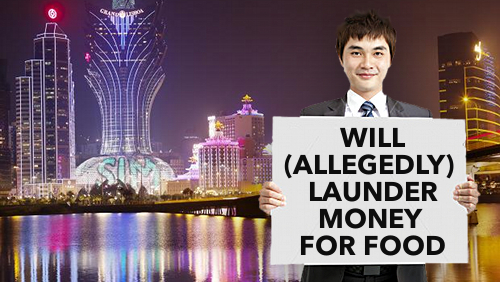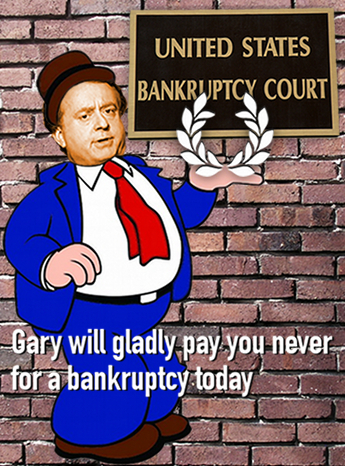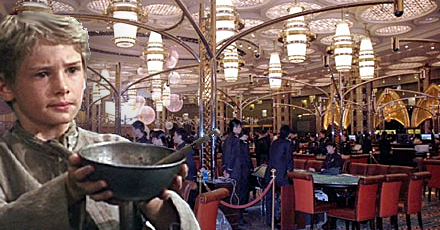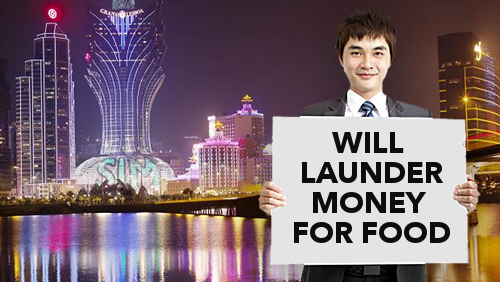 1. MACAU’S DECLINE
1. MACAU’S DECLINE
Talk of Beijing’s eagerness to crack down on corruption had been brewing for a couple years but 2014 was the year the rubber hit the road. The year-on-year monthly declines officially started in the summer and casino operators found a convenient scapegoat in the 2014 FIFA World Cup. But then the tournament wound down and the declines not only failed to stop; they accelerated dramatically.
Six months later, nobody is describing this downturn as a blip. Collective wisdom now has the slump lasting until the second half of 2015, although even that timeline may prove optimistic. Hopes are high that gamblers will be lured back to Macau when Galaxy Entertainment and Melco Crown Entertainment officially unveil shiny new properties on Cotai in 2015 but more sober voices are describing Macau’s downturn as the ‘new normal.’
With Macau’s downturn primarily caused by a dearth of VIP activity, junket operators are taking it especially hard. Outstanding loans are taking longer to collect or not being repaid at all. Credit is tight thanks to Beijing cracking the whip and the theft of over $1b in junket investor cash this spring. Some junkets have closed VIP rooms while others have given up entirely, allowing themselves to be consumed by bigger rivals.
2014 will go into the record books as Macau’s first year of negative growth since Stanley Ho’s monopoly ended and international investors hung out their shingles. But Stanley’s daughter Pansy Ho believes the decline is natural given the torrid pace of growth Macau witnessed over the past decade. Regardless, it’s worth remembering that Macau’s casinos still earn in a quarter what Las Vegas earns in a year.
2. ATLANTIC CITY IMPLODES
The year started on an ominous note with the dismembering of the Atlantic Club’s carcass. The wheels started wobbling following Revel’s second bankruptcy filing in June then came off completely via the rapid-fire closure of the Showboat and Trump Plaza. The list of casualties currently stands at four casinos, and while the Trump Taj Mahal was recently given a temporary reprieve, it may still face the axe early in 2015.
AC’s 2014 revenue will be about half its 2006 peak but there are now only two-thirds the usual number of casinos sharing that pie. In AC’s final monthly revenue release of 2014, six of the eight remaining casinos posted year-on-year revenue gains, so perhaps the bloodletting served its purpose. But try telling that to the thousands of former casino staffers now collecting unemployment.
The newly slimmed down AC may find revenue stabilizing over the next few years, but further downward pressure will come as new casinos open in Philadelphia and Maryland and new markets open in Massachusetts and New York. Absent some undiscovered unique selling point, AC faces a future as just another regional casino market.
 3. CAESARS ENTERTAINMENT’S DOWNFALL
3. CAESARS ENTERTAINMENT’S DOWNFALL
Like Atlantic City’s Revel, the hedge fund takeover of Harrah’s was conceived at the height of the previous decade’s economic boom. And just like Revel, the takeover was saddled with debts it couldn’t pay when the US casino market revenue slumped. Unlike Revel, Caesars’ accountants found a way to avoid paying its debts while allowing management to keep their jobs.
The fourth creditor to hit Caesars with a notice of default in 2014 called the company’s controversial transfers of its more profitable assets into entities free from the parent company’s crushing debts “a case of unimaginably brazen corporate looting and abuse perpetrated by irreparably conflicted management.” Courts have yet to determine whether Caesars’ asset shell game was legal.
A week before Christmas, Caesars announced it had reached a deal to put the company into bankruptcy in January. Senior noteholders will get nearly all of their money back while junior creditors get the shaft. If there’s any justice in this world, a horde of Asian baccarat whales will check in to Caesars Palace during the lunar new year, go on an unprecedented hot streak and end up owning the joint.
4. JAPAN’S BIG TEASE
The desirability of Japan’s prospective casino market was reflected in the truly astronomical sums casino operators were willing to throw around in public to make their proposal stand out of the crowd. Previously, a $4b budget was considered a mega-project. In Japan, $4b wouldn’t get you a pachinko parlor on the most radioactive plot of land in Fukushima.
Las Vegas Sands got the party started in February by promising to spend $10b building its Japanese casino, an offer which was quickly matched by MGM Resorts while the best Caesars Entertainment could do was insist it would still be in business by the time regulators actually started vetting candidates.
But it was all for naught. Opposition from certain politicians and social conservatives combined with a souring Japanese economy prompted Prime Minister Shinzo Abe to call a snap election in November and the casino legislation went on the shelf without a vote. The laborious process of passing the first casino bill is set to resume in the new year, by which time the bidding will probably start at $15b and applications will have to be submitted in the form of a haiku, such as:
Please accept our bid / Super happy gaming fun / Now yakuza-free
5. VEGAS, BABY
A common theme emerged from earnings reports by casino operators with feet in both Macau and Las Vegas. In sheer dollar terms, Asian revenues continued to outperform Vegas. In year-on-year comparisons, Macau was in the dumps while Vegas was still on the rise following its 2009 swoon. True, Nevada’s numbers dipped in the second half of the year, but the monthly declines were of the single-digit variety, not the 20% horrors experienced in Macau.
Vegas has an ace in the hole that insulates it from Macau’s depths of despair. Gaming might take a hit while the Asian baccarat whales stick closer to home but Vegas clubs, restaurants, pools and concert venues are packed. Midway through December, Vegas set an all-time record of 40m annual visitors.
 6. MACAU LABOR UNREST
6. MACAU LABOR UNREST
After years of stagnant wages, smoke-filled lungs, verbal and/or physical abuse at the hands of irate baccarat whales, Macau’s casino workers snapped in 2014. As a wise man once observed, the meek shall inherit shit, so Macau workers tore off their bowties and took to the streets in protest. When massed marches failed to convince casino operators to take them seriously, labor unions began targeted job actions.
Some of the casinos transferred staff from other properties to blunt the impact of these job actions but local laws prevented them from bringing in extra dealers from outside Macau. In the end, most operators attempted to buy labor peace by offering annual bonuses of various sizes but the unions kept pushing for more.
Unfortunately, their timing wasn’t the best, as their protests coincided with the start of Macau’s decline, allowing the casinos to suddenly cry poor. It also coincided with democracy protests in Hong Kong, which made the authorities view the Macau protests with suspicion. After China’s President Xi Jinping used December’s visit to Macau to warn against further public protestations, it remains to be seen if Macau’s workers will have the courage to take to the streets again in 2015.
7. SINGAPORE’S REVENUE FLATLINES BUT REPUTATION RISES
Revenue-wise, Singapore’s two integrated resorts suffered along with Macau in 2014 but signs of stagnation had set in long before Macau’s freefall began in earnest. Macau posted a nearly 19% revenue gain in 2013 while Singapore’s growth was less than 4%. Through the first six months of 2014, the number of Chinese tourists visiting Singapore fell by 30%.
But while Singapore may have plateaued, it’s reputation as a regulatory model has been elevated by other Asian jurisdictions contemplating launching their own casino market. Singapore’s regulators have not been shy about doling out six-figure fines with alarming frequency, while the daily casino entry levies for local residents are viewed as an acceptable compromise to a blanket prohibition on locals gambling in casinos, which most operators view as a deal breaker.
8. PHIL IVEY’S EDGE SORTING
Ivey, arguably the world’s top poker player, has developed a reputation over the years as someone willing to wager vast sums on craps, a game that, unlike poker, is almost wholly dependent on luck. So it wasn’t entirely a surprise to learn that Ivey also enjoyed baccarat, another casino table game in which skill takes a back seat. Then it turned out that Ivey wasn’t really surrendering to the whims of fate but had found a way to flip the house edge to his own advantage.
In 2013, London’s Crockfords casino accused Ivey of edge-sorting, which takes advantage of tiny flaws in the card manufacturing process that create irregular patterns in the printed designs on the backs of the cards. This year, Atlantic City’s Borgata casino also accused Ivey of the tactic, suing to recover nearly $10m in winnings they’d paid out.
In both cases, Ivey fessed up to edge-sorting but claimed the casinos were entirely to blame for granting his requests to use certain packs of cards and for rotating high-value cards so that they’d be more easily identifiable the next time they came out of the dealer’s shoe.
Crockfords, which had refused to pay Ivey his £7.8m in winnings, won its court case in October. The Borgata is still trying to claw back its losses. Throughout, Ivey has remained unrepentant.
